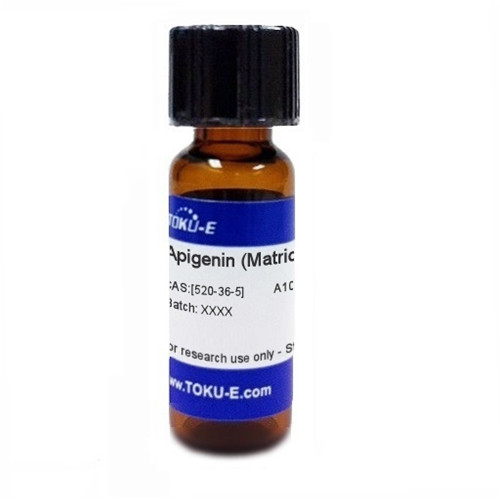Apigenin is a natural occurring, ubiquitous, low molecular weight, bioactive plant flavone. It belongs to the flavonoid subclass and has antioxidant, anticancer, and anti-inflammatory properties. Apigenin affects several critical pathways and/or targets which are associated with several health disorders including cancer.




